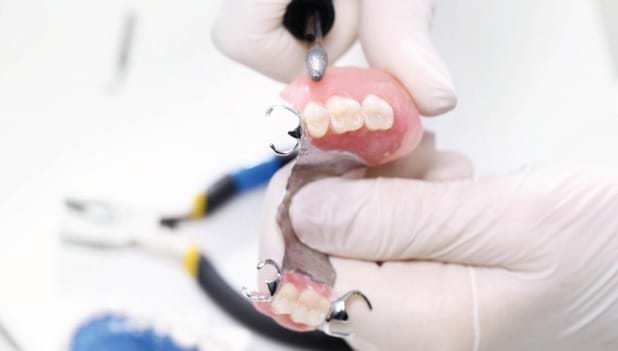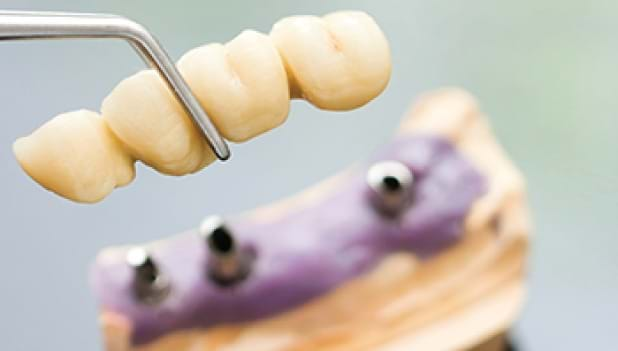Root Canal Treatment

See your Teeth Shine Turkey dentist in to ensure you get the care you need to avoid an unnecessary tooth extraction.
Root canal therapy is a dental procedure in which a tooth’s inflamed, damaged or infected pulp is removed from the root. The emergency dentist after removing the pulp medicates the infected area, fill the root canals and finally fit with a crown. Root canal treatment is one of the best ways to save a tooth that is already “dead”.
Root Canal Therapy at Teeth Shine Turkey
A Solution for Painful Teeth
In many cases, a root canal, more appropriately called endodontic treatment, is the most effective way to save a tooth that has become decayed, infected, or traumatized in some way. Rather than extract the offending tooth, a root canal treatment removes the pulp of the tooth, enabling the tooth itself to continue to function normally–minus the pain and the initial problem.
See your Teeth Shine Turkey dentist in to ensure you get the care you need to avoid an unnecessary tooth extraction.
What exactly is a root canal?
A root canal involves removal of the soft tissue pulp that lies just below the tooth’s hard surface, called enamel or dentin. This pulp holds the tooth’s nerves and blood vessels so necessary for tooth growth during development.
Sometimes, the pulp becomes damaged due to infection, decay, or trauma. In other cases, a tooth may just be poorly positioned. In either case, the soft tissue pulp will need to be removed once it becomes inflamed or infected. Otherwise, it can lead to pain and swelling, or if left untreated, possibly even an abscess.
The root canal procedure.
If your dentist decides you need a root canal, this infected, but non-essential pulp will be removed so that the area can be disinfected. After disinfection, the pulp will be replaced with gutta-percha, a soft, safe, rubber-like material. Once the area heals, your tooth should function normally again. Even without the problem pulp, the tooth will continue to receive nourishment from the surrounding tissue.
The benefits of a root canal.
A root canal should improve both the appearance and the functionality of a formerly infected or damaged tooth. After a successful endodontic procedure, you should find you are able to bite and chew just as you did before your tooth experienced problems. Equally important, saving the problem tooth helps prevent undue stress on the teeth surrounding it.
What to expect during a root canal.
The type of endodontic therapy you need depends on where the problem tooth is located - anterior tooth, posterior tooth or molar–and how serious the trauma, infection or inflammation is. Typically, a root canal treatment will be completed in one to two office visits.
Root canal retreatment.
In some cases, a root canal may become re-infected. If this happens, you will require a second root canal, called a root canal retreatment. This second procedure helps promote healing by ensuring a proper healing environment.
How to tell if you need a root canal?
The overwhelming clue as to whether or not you need a root canal treatment is pain. Once a tooth becomes traumatized or infected, the area surrounding it will swell and become red. You may also experience difficulty chewing or biting. In some cases, a broken tooth may expose the nerve.
Whatever the case, the most likely indication that you need treatment will be tooth pain. If you have specific questions about a root canal treatment, ask your Teeth Shine Turkey dentist for guidance. He or she will explain your options in detail.
How uncomfortable is a root canal?
Often the subject of jokes, a root canal is actually a fairly routine dental procedure. Your Teeth Shine Turkey dentist will discuss the procedure and sedation options with you beforehand, as well as any special care instructions you’ll need to follow afterward.
A root canal involves removal of the soft tissue pulp that lies just below the tooth’s hard surface, called enamel or dentin. This pulp holds the tooth’s nerves and blood vessels so necessary for tooth growth during development.
Sometimes, the pulp becomes damaged due to infection, decay, or trauma. In other cases, a tooth may just be poorly positioned. In either case, the soft tissue pulp will need to be removed once it becomes inflamed or infected. Otherwise, it can lead to pain and swelling, or if left untreated, possibly even an abscess.
The root canal procedure.
If your dentist decides you need a root canal, this infected, but non-essential pulp will be removed so that the area can be disinfected. After disinfection, the pulp will be replaced with gutta-percha, a soft, safe, rubber-like material. Once the area heals, your tooth should function normally again. Even without the problem pulp, the tooth will continue to receive nourishment from the surrounding tissue.
The benefits of a root canal.
A root canal should improve both the appearance and the functionality of a formerly infected or damaged tooth. After a successful endodontic procedure, you should find you are able to bite and chew just as you did before your tooth experienced problems. Equally important, saving the problem tooth helps prevent undue stress on the teeth surrounding it.
What to expect during a root canal.
The type of endodontic therapy you need depends on where the problem tooth is located - anterior tooth, posterior tooth or molar–and how serious the trauma, infection or inflammation is. Typically, a root canal treatment will be completed in one to two office visits.
Root canal retreatment.
In some cases, a root canal may become re-infected. If this happens, you will require a second root canal, called a root canal retreatment. This second procedure helps promote healing by ensuring a proper healing environment.
How to tell if you need a root canal?
The overwhelming clue as to whether or not you need a root canal treatment is pain. Once a tooth becomes traumatized or infected, the area surrounding it will swell and become red. You may also experience difficulty chewing or biting. In some cases, a broken tooth may expose the nerve.
Whatever the case, the most likely indication that you need treatment will be tooth pain. If you have specific questions about a root canal treatment, ask your Teeth Shine Turkey dentist for guidance. He or she will explain your options in detail.
How uncomfortable is a root canal?
Often the subject of jokes, a root canal is actually a fairly routine dental procedure. Your Teeth Shine Turkey dentist will discuss the procedure and sedation options with you beforehand, as well as any special care instructions you’ll need to follow afterward.




